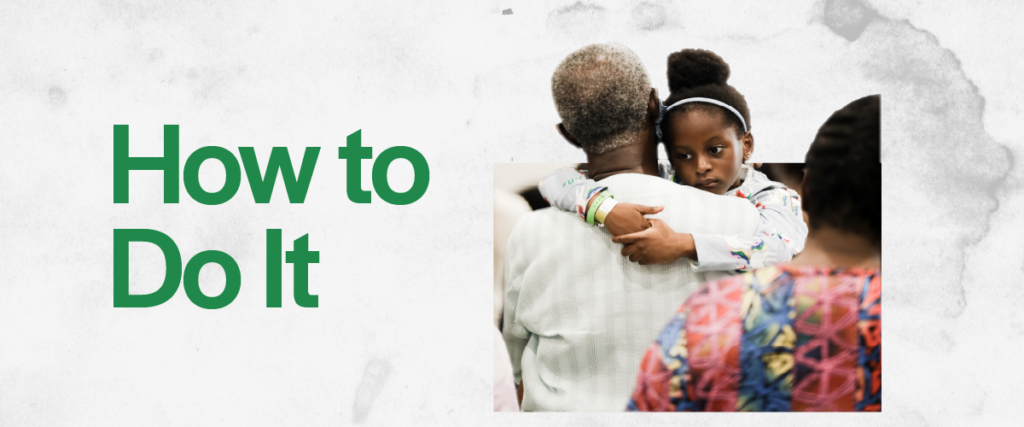
Two weeks ago, we began an interview with Chidinma Abiakalam, a Childhood Consultant and Mental Health Worker. She shared insights on building a healthy relationship with children and the ways past experiences affect current and future happenings in parent-children relationships. We found the last interview helpful and we recommend that you read it here, if you have not.
In this week’s interview, she talks about conflicts and estrangements in parent-children relationships, repairing broken relationships, as well as navigating issues that inevitably come up in the development of a child.
How can a parent healthily engage in conflict with their child(ren) whether as a kid or adult?
You see, a primary cause of conflict is when parents fail to realize that children have developmental stages; a two-year-old is not the same as a four-year-old who is not the same as a ten-year-old. However, whether in conflict with a ten-year-old over what to wear or an adult over whom to date, a parent must learn not to throw tantrums.
Parents do throw tantrums such as blackmailing under the guise of authority. Tantrums include statements such as “You will tell me who is the father today, you or me?” Such only adds fuel to the conflict, and is a form of intimidation using your authority as a parent. Being a parent with authority means that you may be upset but not physically agitated. This may sound very unreal, which is why I must remind you as a parent to give yourself some grace, you are human and not automated. You will make mistakes but don’t be too hard on yourself. However, in conflict, you must learn to be calm and remind yourself of the aim; this is not a war, this is your child, and you are not trying to win. This does not mean that your child will always agree with you, but you must create a psychologically safe environment for your child. This is your responsibility as a parent.
Secondly, conflict is about two people not listening to and understanding each other. A parent should learn to listen ‘with their heart’, with empathy. For example, when a ten-year-old is adamant about not attending after-school lessons, you must listen to understand what is not being said. “Could it be that they are being bullied?” While listening does not mean agreeing, it means seeking to understand so that you can have the grounds to agree or disagree.
Thirdly, when in conflict, you must learn to stay on the issue, don’t attack the child. For example, if your child wants to go to a party, you don’t start talking about the child’s stubbornness.
Lastly, parents must learn to provide boundaries. These are ground rules that every family should have, such as “We must not be physically or verbally abusive” “We don’t raise our voices” or “The child must not walk out on you”.
In your experience, why do you think that there is much estrangement between parents and their growing or grown child(ren)?
Estrangement is when a relationship becomes strained. When a parent and child that are expected to have a good relationship become strangers despite the biological connection, there is no longer a social and emotional connection.
Estrangement starts out with parents and children having certain expectations. Let’s start with the parents because as I always say, it’s the parents that should chase after a child, not the other way. Unfortunately, in our culture, it is shown that it is the child that runs after the parents. This opposes our God-given roles as parents to nurture and care for a child. More so, it opposes the nature of God who is our example of the ultimate Father, He first chased after us. Does this mean that it is bad to have expectations of your children? Not at all. But there are expectations born from unrealistic dreams and unmet desires, such as wanting to be a doctor or to be slim but being unable to; and remembering how I was bullied, then I transfer that expectation to my child, thereby projecting my fears and insecurities onto him or her. Such expectations lead to frustrations, fights and conflicts, and before you know it, communication starts to break down.
Another reason for estrangement is pent-up anger and resentment. When there are certain unresolved issues that linger. I know a particular lady, now in her thirties who complained that her mom was very neglectful by attending “Owambes” regularly, so she carries that pain all around and though the mother now wants a relationship with her, she says “I have nothing to say to her”. You see, estrangement builds over time and when parents are much older, they suddenly come to realize that they don’t have a healthy relationship with their child.
Lastly, dishonour causes estrangement. When a child does not respect his or her parents, perhaps due to peer pressure or bad influence because every relationship needs mutual respect and trust to work.
Speaking of peer pressure and the desire for social acceptance, how can parents help their child(ren) navigate these issues through their interactions and relations?
As we have established, the home or lack of one is a very vital part of the forming of a person. It is true that the relations and interactions at home affect a person’s self-esteem and social interactions. For example, there is something called the attachment theory where babies want to be held, cuddled, and smiled at. Studies have shown that these things help a child feel secure. In the same way, there are signs of love you show to a child, such as spending time with them; to talk and play while creating a safe space for them to share their hobbies, wants and needs. When these are absent, the child starts to question themselves and their value. An example of the effect of lack of affirmation is a lady who suffers from low self-esteem because while growing up, her mother will tell her she is not a pretty child and so she should look for other things to make her get ahead in life.
It is only when a child feels valuable that they are able to make wiser decisions around the use of media, friends, activities and actions. Without it, they start to look for affirmation and acceptance in the wrong places.
Lastly, a parent must live by example. Your child(ren) has to see that you are not pushed around by outside noises. You cannot only tell them about the ideal life, your life has to be evidence of it. This does not exclude you from actually telling them; teach them that not everything on the media is real and they should not be trying to replicate people’s lives. You can even give them examples of your life and experiences so the lesson can be more real to them.
Earlier, you talked about the permissive parenting style but we have also heard about Intentional Parenting, what role does our parenting style play in building a healthy relationship with our child(ren)?
There are different parenting styles; ‘the permissive’ where the parent does not want to set boundaries, ‘the authoritarian’ which is military-like, ‘the neglectful’ where the parent focuses on other priorities to the detriment of the child and ‘the helicopter’ parenting style where the parent dotes on the child and does everything for him or her.
Research has proven that the healthiest parenting style for a child is authoritative parenting. In this parenting, the parent is emotionally available, physically present, listens empathetically and also holds the child to certain expectations because of the deliberateness of their parenting. Intentional Parenting is when you are purposeful and deliberate in your plans to instruct, discipline, love and pay attention to the child.
How can parents who find themselves in broken relationships with their children, begin the journey of repairing it?
I will say, a lot depends on the ages of the children. Of course, it is easier if the child is very little, but it also largely depends on the issues that caused the estrangement. In extreme cases, there are some parents who will have to make peace with the fact that the relationship may never be mended. This does not mean the child has not forgiven the wrongdoing, it only means there is a long journey of forgiveness to be made and it may be difficult to establish a cordial relationship.
However, in more regular cases of conflict, the first thing the parent has to do is a self-check; recognizing and acknowledging their faults and contribution through words, actions and inactions to the estrangement. Next is to take responsibility, apologize and listen to the child. Be open-minded to hear his or her hurt without putting up a wall of defence. The child’s perception may be wrong, but you can apologize for how they felt and express your desire to mend the relationship.
Lastly, when necessary, don’t be shy to bring in a third party in cases where the estrangement runs deep and has lingered. If the conversation will be too awkward, seek a third party that both your child and you respect to act as a mediator.
Chidinma Abiakalam is a Childhood Consultant, Mental Health Facilitator, and qualified Counsellor from the Modern Montessori Institute, London. She holds a certificate in Mental Health for Children and Adolescents from the Federal Neuro-Psychiatric Hospital, Lagos. Furthermore, she is a Richmond Graduate University, USA Certified Community Mental Health Worker and a certified counsellor for children and adolescents from The Psychology and Counselling Courses, Udemy.
For over ten years, Chidinma has trained and implemented Mental Health and Parenting workshops, seminars, conferences, consultations and counselling for schools, businesses and families. She helps her clients strengthen work and personal relationships, rediscover joys and embrace emotional wellness. Chidinma is happily married and a mother to four teenagers. You can contact her at [email protected]
